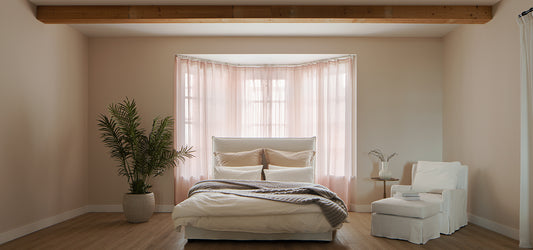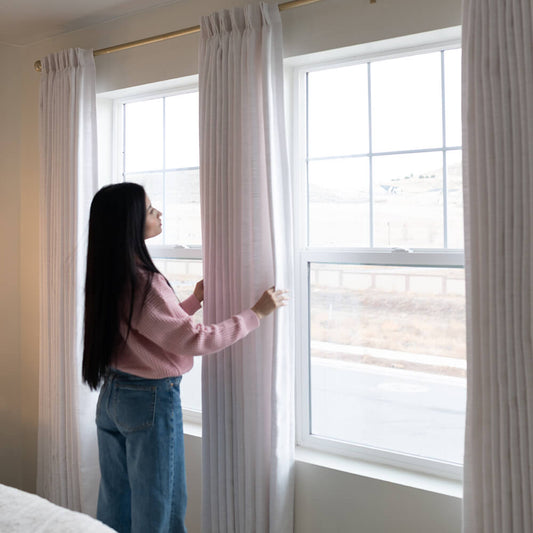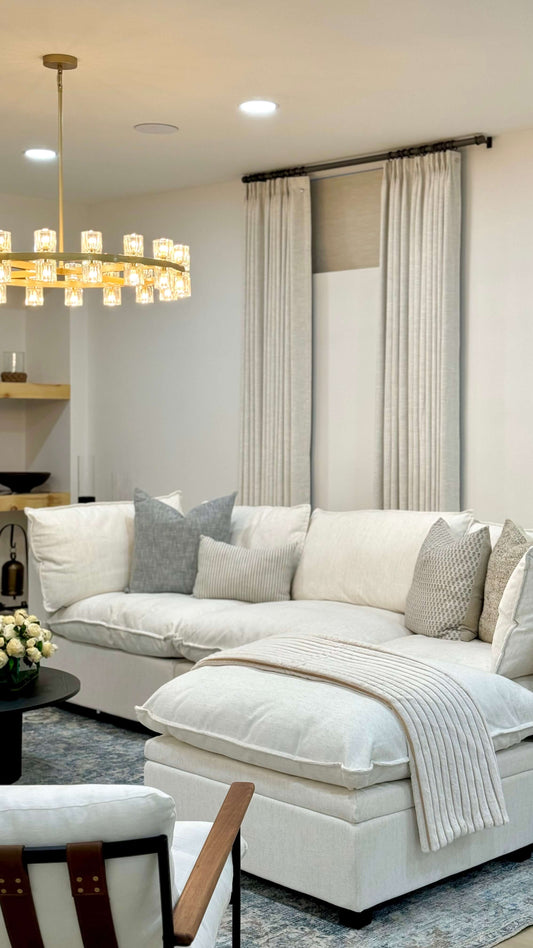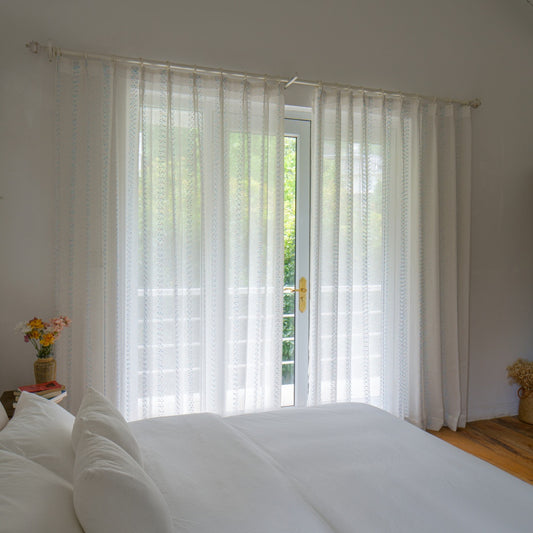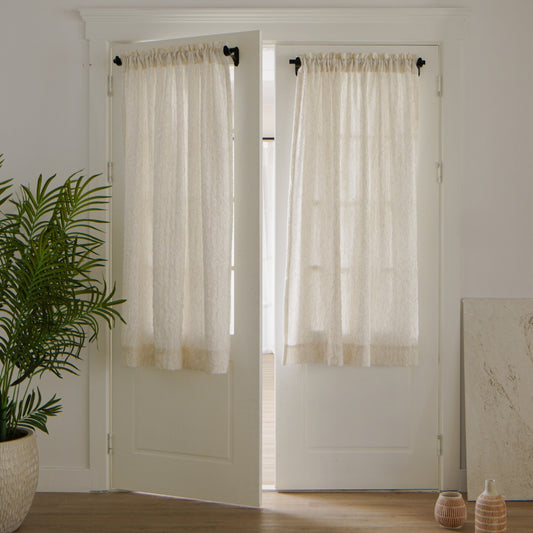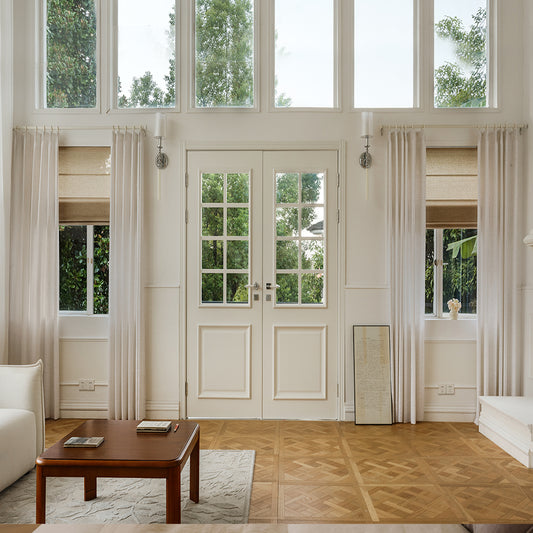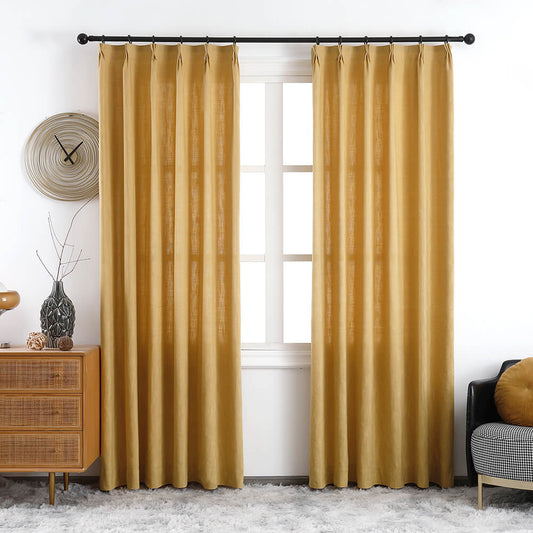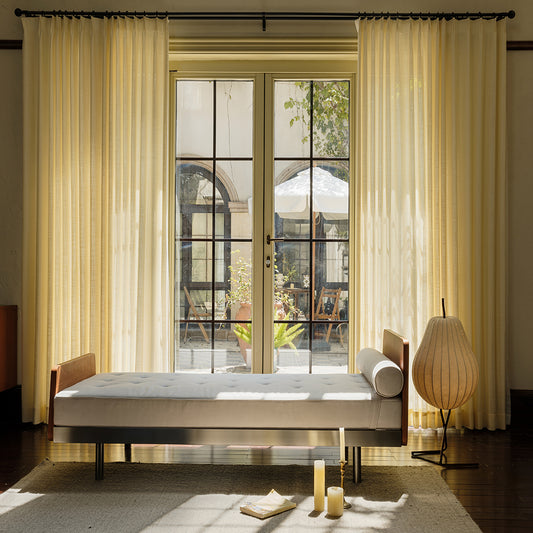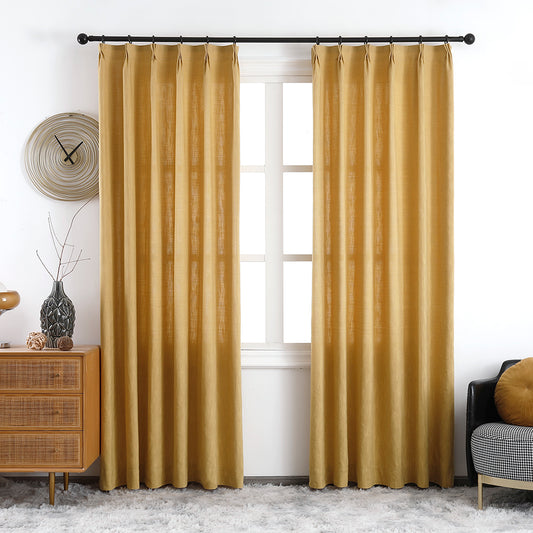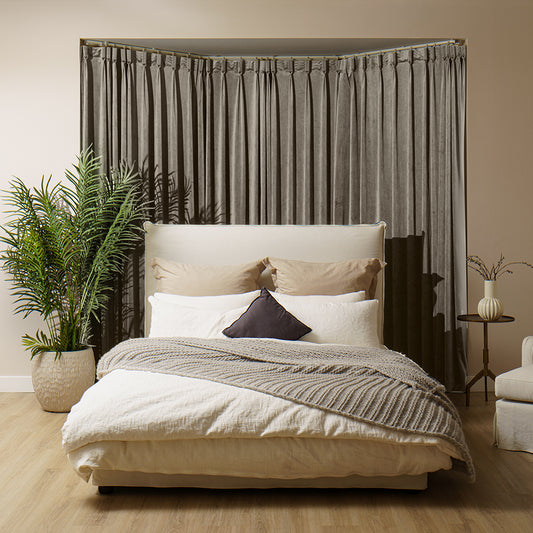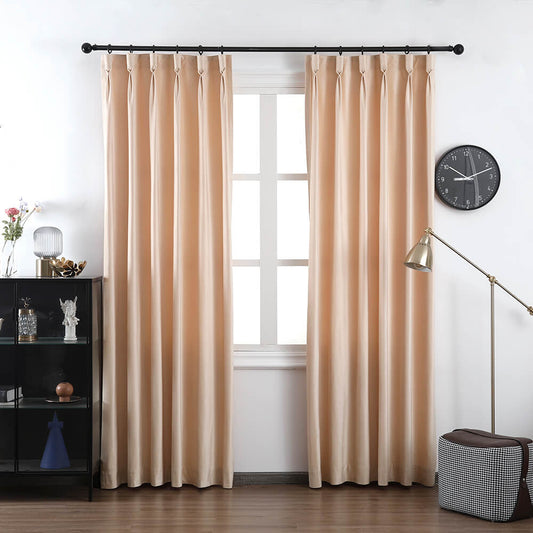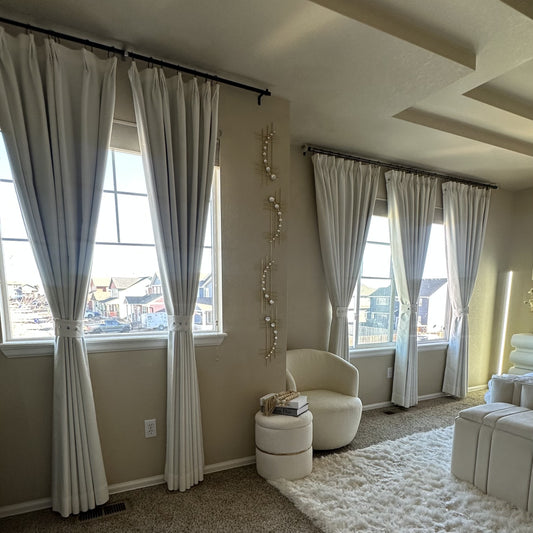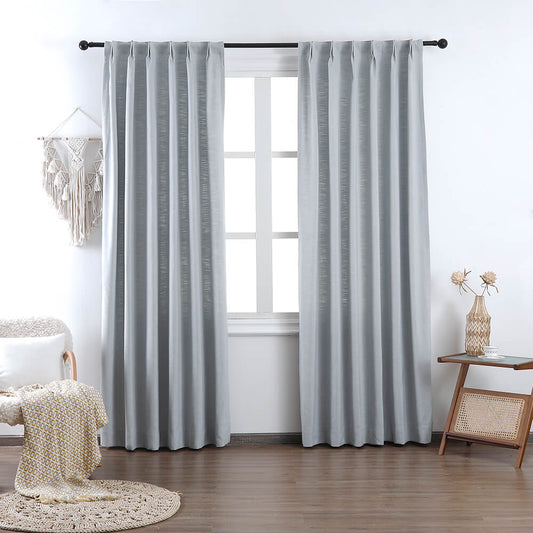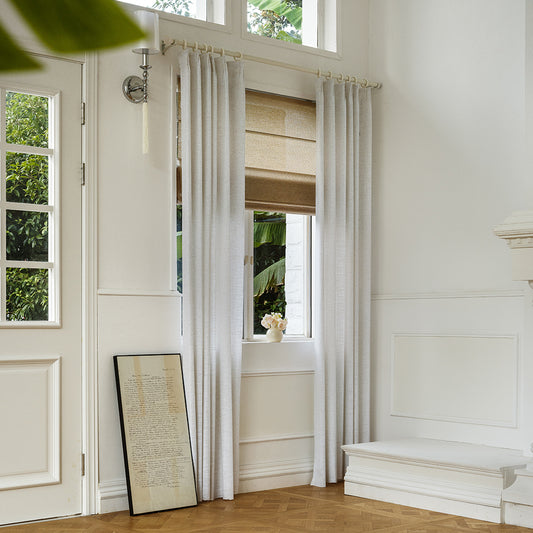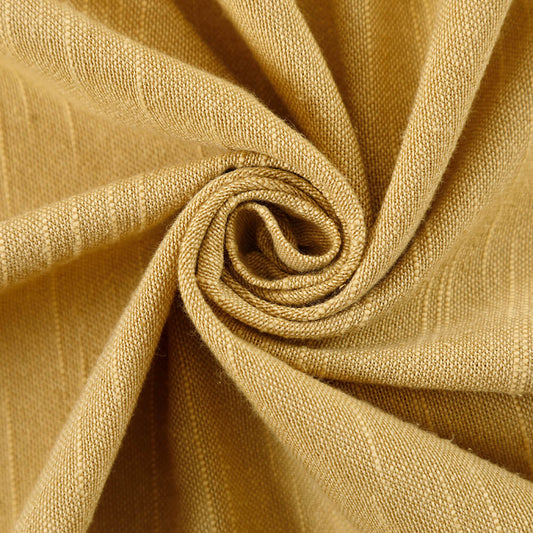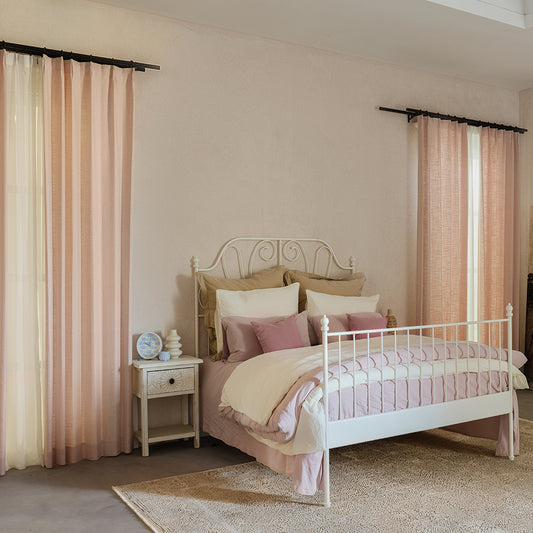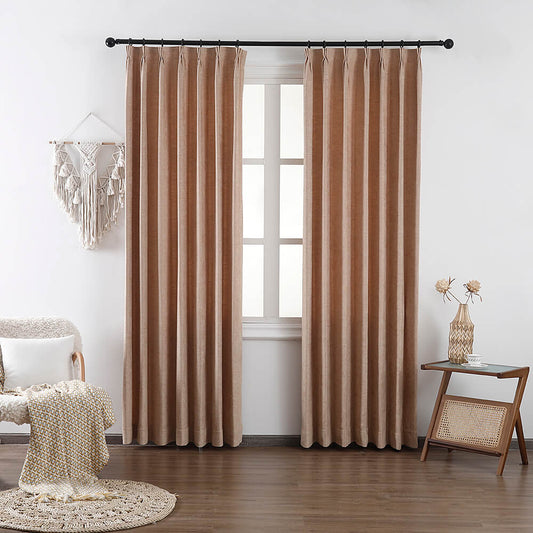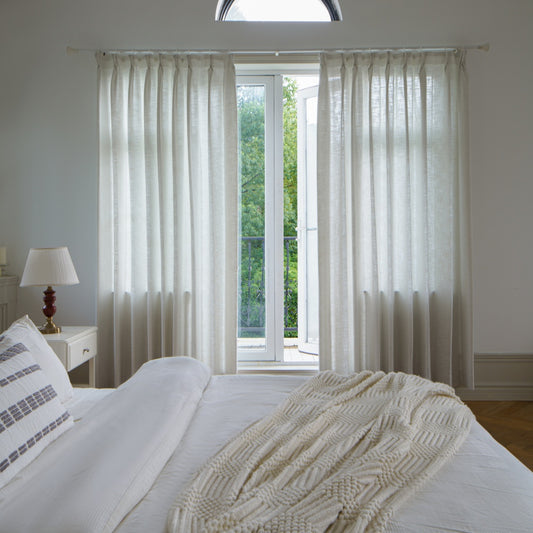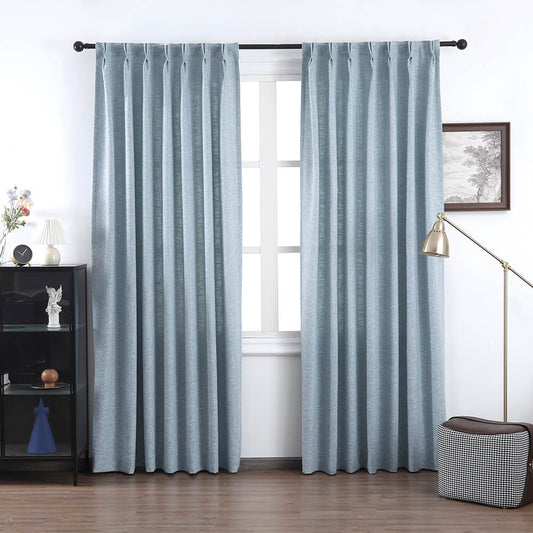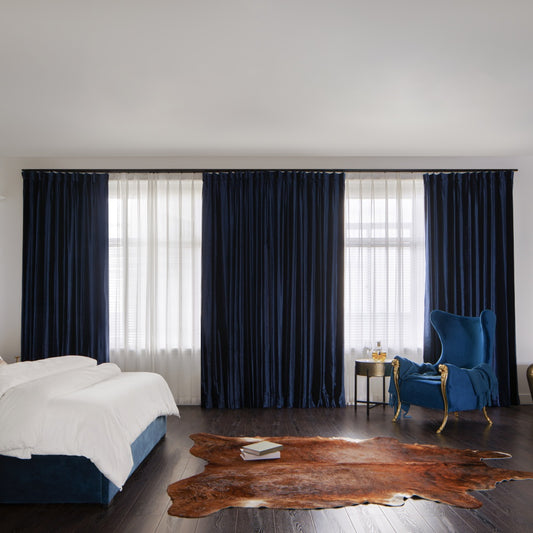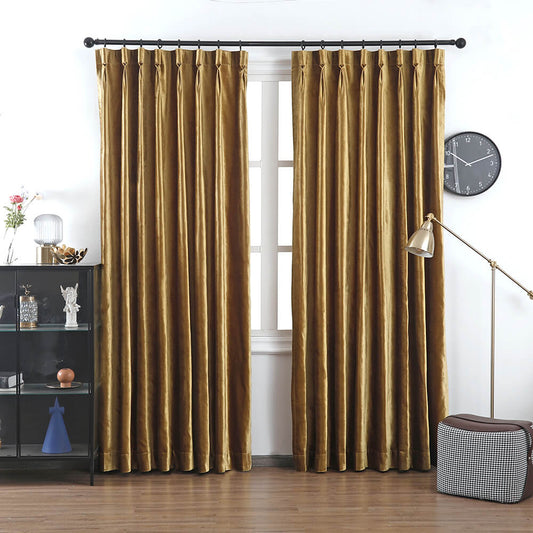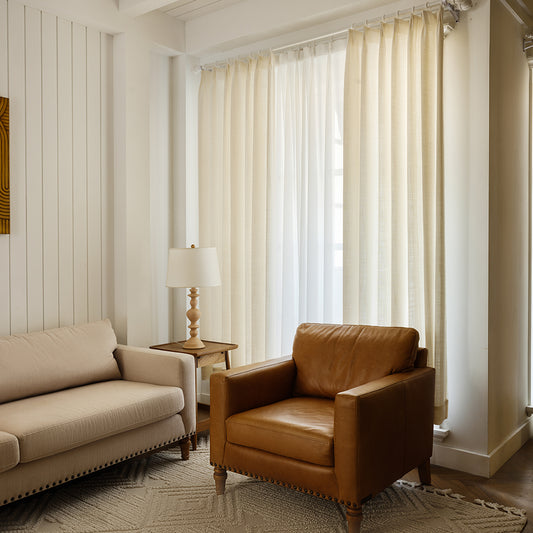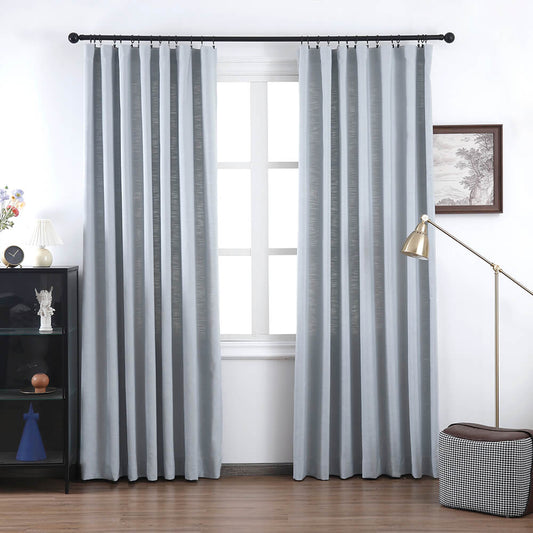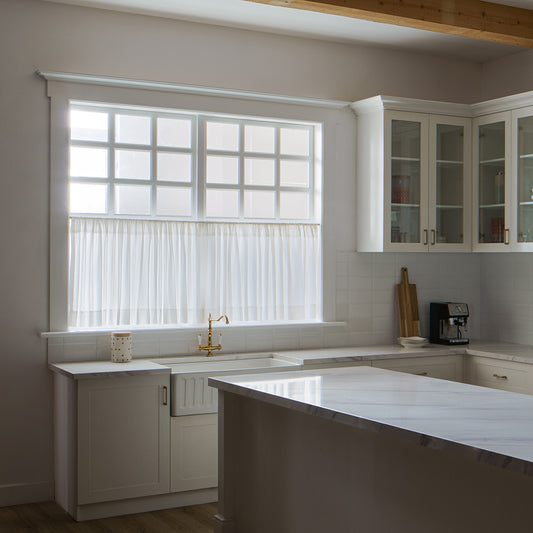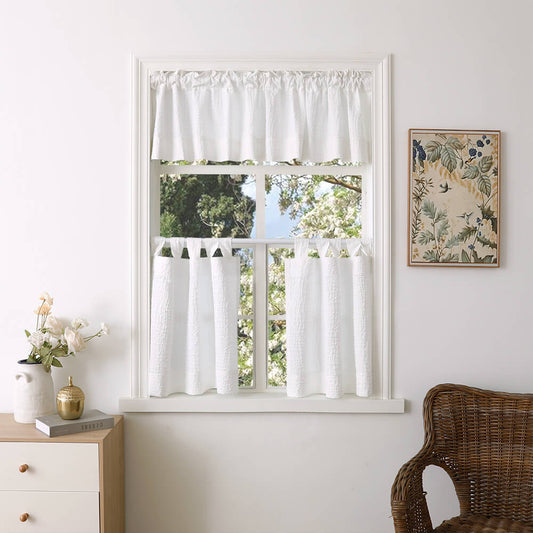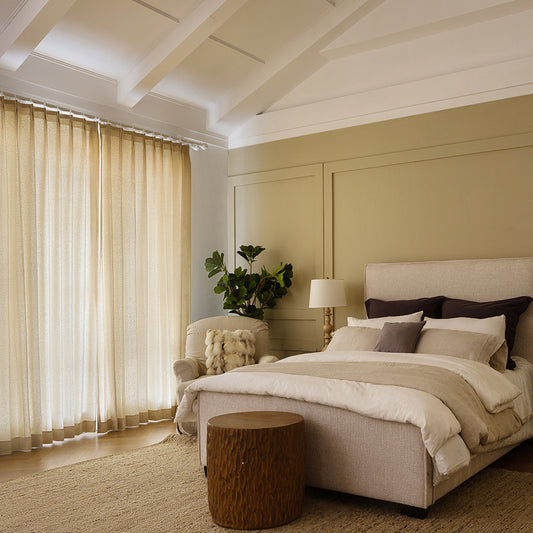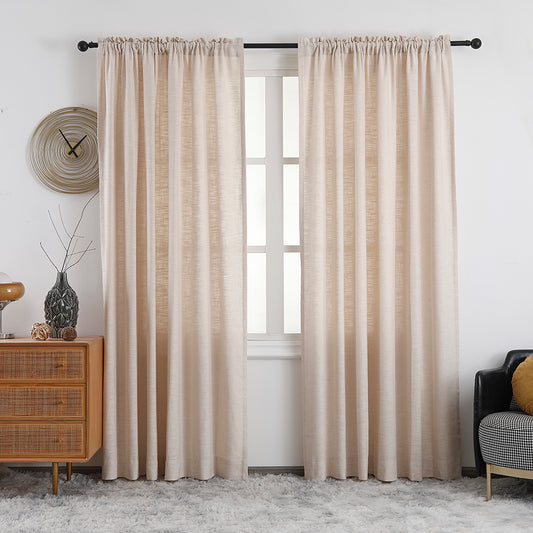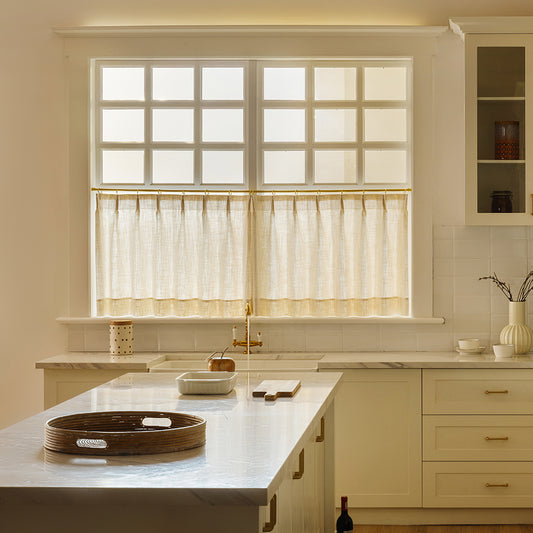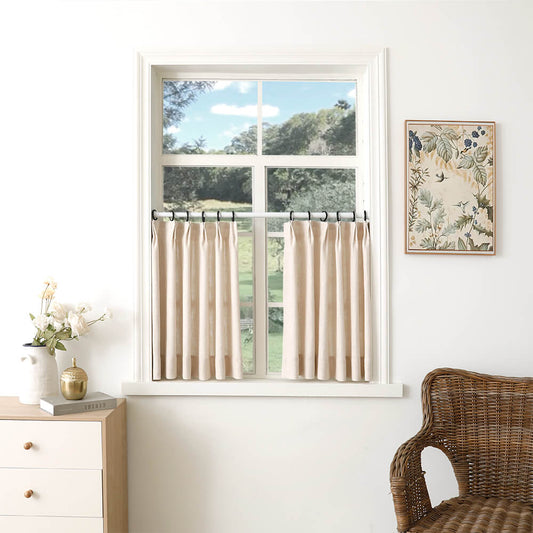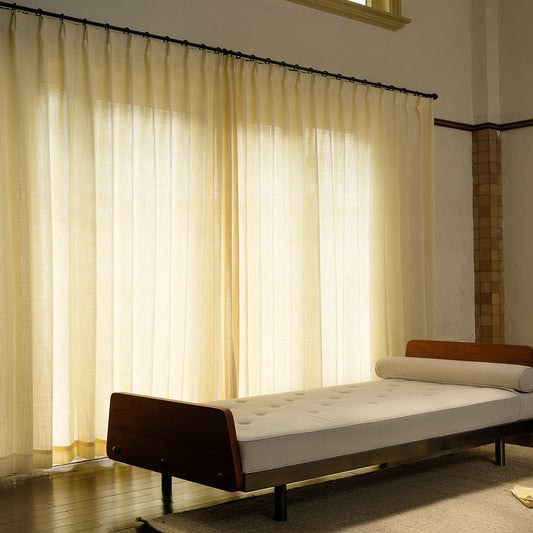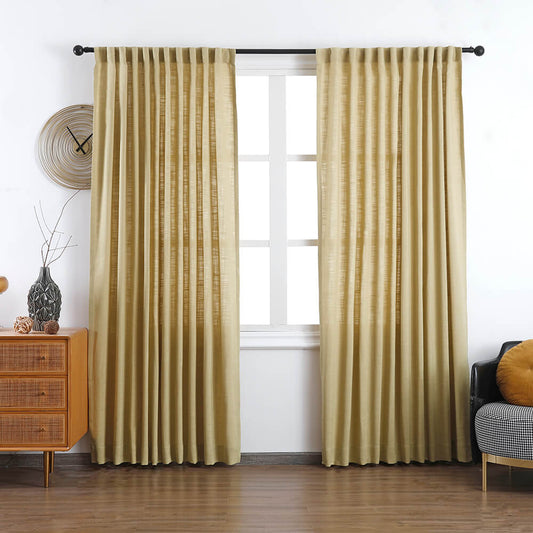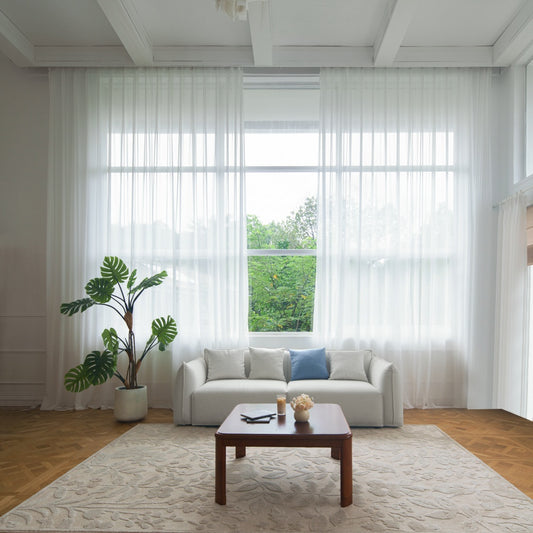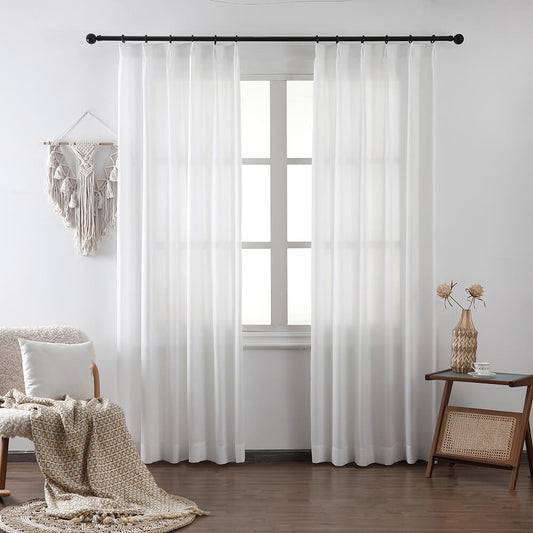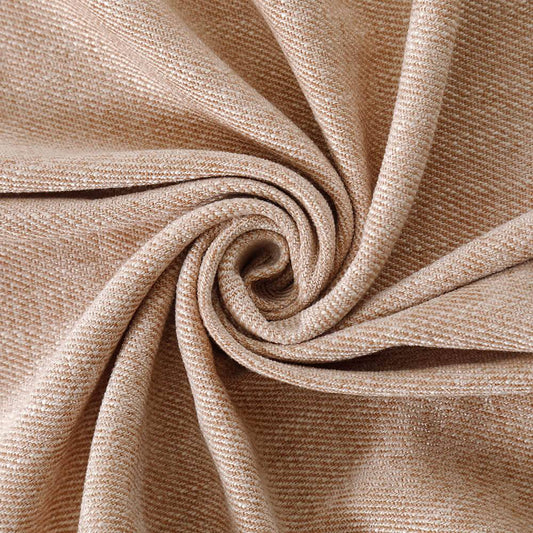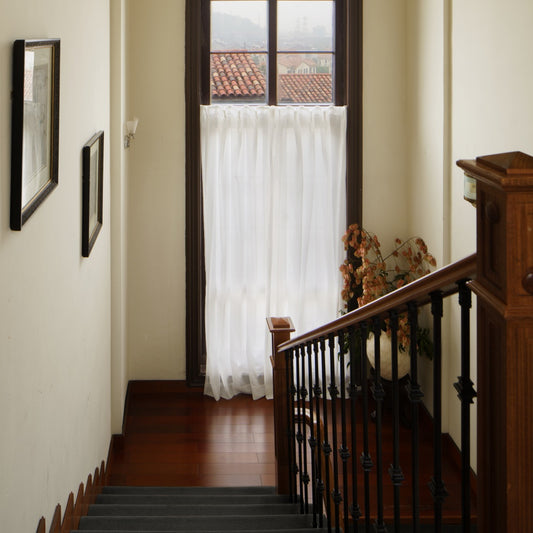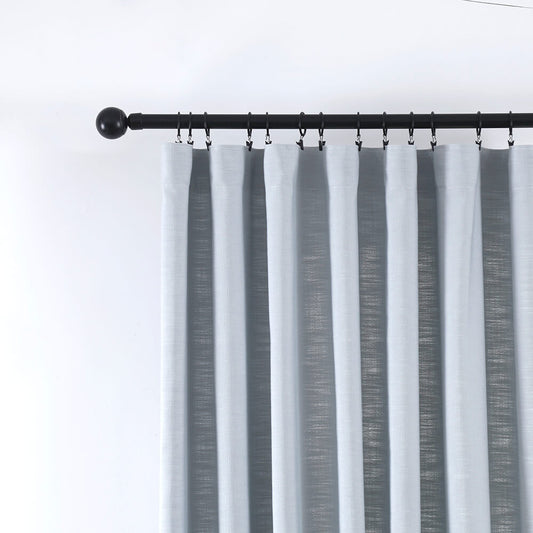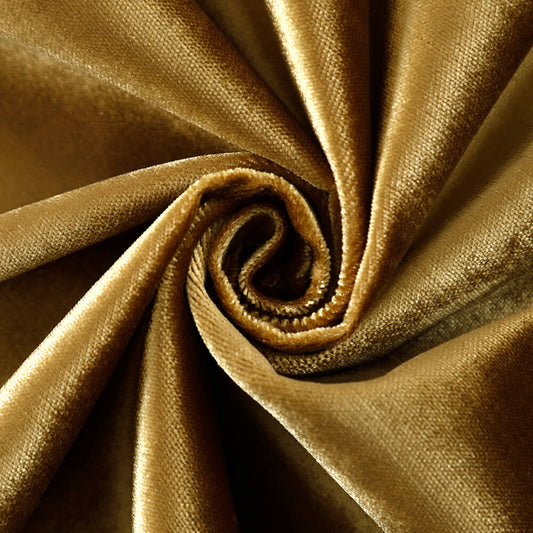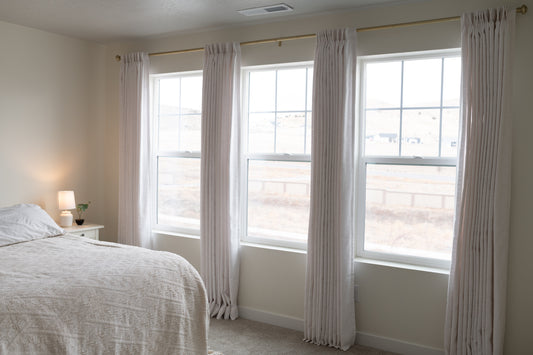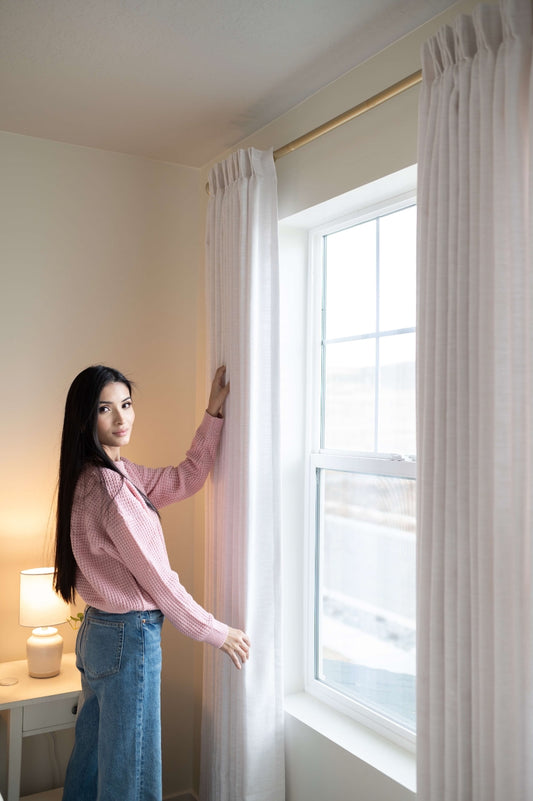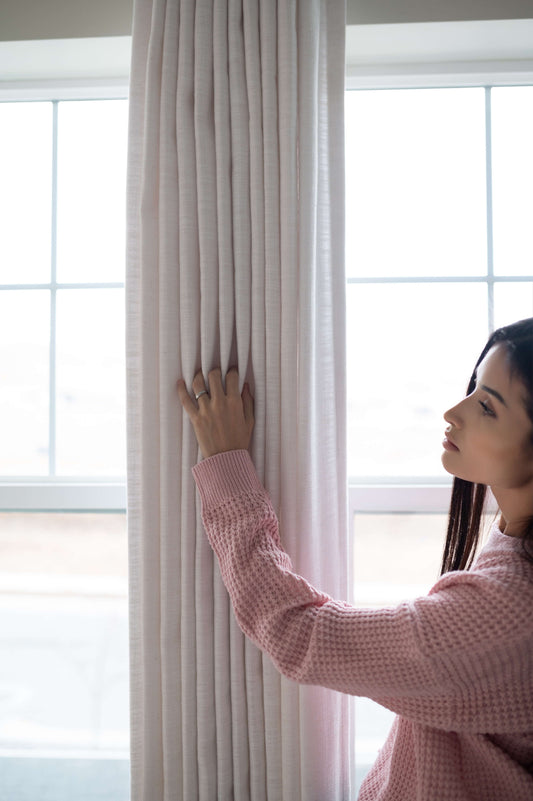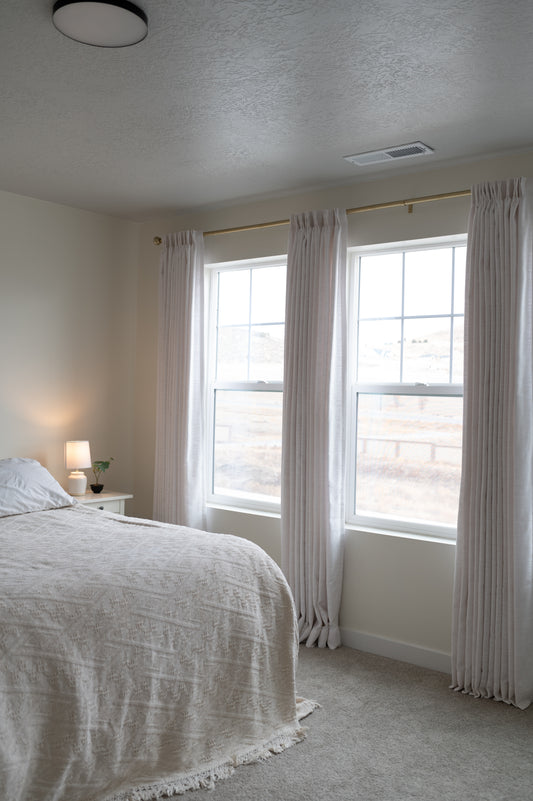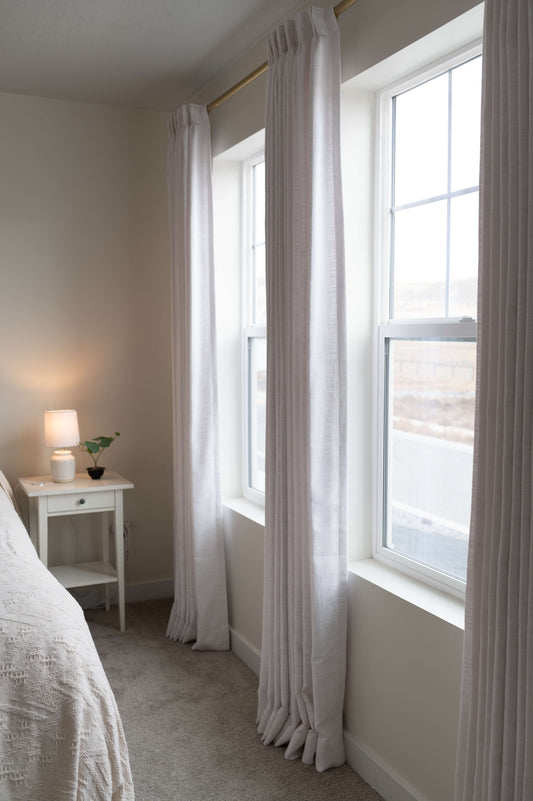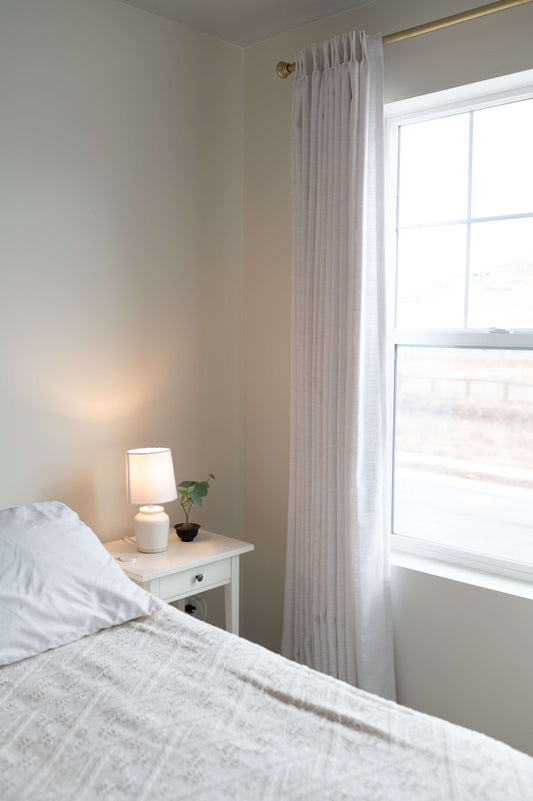Which Fabric Is Best for Wholesale Custom Curtains?
The best fabric for wholesale custom curtains balances durability, appearance, maintenance, and functionality. Popular options include cotton for versatility, polyester for affordability and durability, linen for elegance, velvet for luxury, and silk for sophistication. VeilVeil offers a curated selection of premium fabrics tailored to meet diverse commercial and residential needs with consistent quality.
How Do Different Fabrics Affect the Look and Feel of Custom Curtains?
Fabric choice dramatically influences the ambiance of a room. Cotton provides a casual, breathable feel; velvet adds richness and depth with its plush texture; linen offers a natural, airy elegance; silk delivers a luxurious sheen; polyester blends combine practicality with a smooth finish. VeilVeil’s fabric range allows clients to match curtain textures and colors precisely to their interior design vision.
What Are the Durability Differences Among Common Curtain Fabrics?
Durability varies widely: polyester and nylon are highly resistant to wear, fading, and wrinkles, making them ideal for high-traffic or commercial spaces. Cotton is durable but prone to wrinkling and shrinking without proper care. Linen offers moderate durability but requires gentle handling. Velvet and silk are more delicate, needing careful maintenance to preserve their appearance. VeilVeil ensures all fabrics meet rigorous quality standards for longevity.
Which Fabrics Provide the Best Light Control and Privacy?
Blackout polyester and velvet curtains excel at blocking light and enhancing privacy, suitable for bedrooms or media rooms. Linen and cotton filter light softly, creating a warm glow while maintaining some privacy. Sheer fabrics like voile and chiffon allow maximum light but minimal privacy. VeilVeil offers layered curtain solutions combining sheer and blackout fabrics for versatile light management.
Why Is Maintenance an Important Factor When Choosing Curtain Fabrics?
Maintenance affects the lifespan and appearance of curtains. Polyester and nylon are low-maintenance, machine washable, and wrinkle-resistant. Cotton and linen require more care, often needing dry cleaning or gentle washing to avoid damage. Velvet and silk demand professional cleaning to maintain texture and color. VeilVeil provides care instructions tailored to each fabric to help customers preserve their curtains’ beauty.
Who Should Consider Luxury Fabrics Like Silk and Velvet for Their Curtains?
Luxury fabrics suit formal settings such as upscale hotels, executive offices, or elegant homes. They create a statement with rich textures and sophisticated finishes but require investment in maintenance and careful placement away from direct sunlight. VeilVeil’s premium collections offer these fabrics with enhanced durability treatments to extend usability.
When Is It Best to Choose Synthetic Fabrics for Wholesale Curtains?
Synthetic fabrics like polyester and nylon are ideal for environments needing durability, stain resistance, and affordability, such as schools, hospitals, or rental properties. They withstand frequent cleaning and heavy use. VeilVeil’s synthetic fabric options combine these benefits with attractive textures and colors.
Where Can Eco-Friendly Curtain Fabrics Be Incorporated?
Eco-friendly fabrics, including organic cotton, recycled polyester, and hemp blends, are increasingly popular in residential and commercial projects emphasizing sustainability. VeilVeil integrates eco-conscious materials without compromising style or performance, supporting green building certifications.
Does Fabric Weight Affect Curtain Functionality?
Yes, heavier fabrics like velvet and damask provide better insulation, sound absorption, and light blocking, enhancing energy efficiency and comfort. Lighter fabrics such as linen and voile offer breathability and a soft aesthetic but less thermal benefit. VeilVeil helps clients select fabric weights that align with their functional priorities.
Has Fabric Technology Improved Curtain Performance?
Modern fabric technologies have enhanced durability, stain resistance, UV protection, and flame retardancy. VeilVeil incorporates these innovations in its fabric selections, ensuring curtains meet safety standards and maintain appearance over time, even in demanding environments.
Can Combining Fabrics Optimize Curtain Benefits?
Layering sheer fabrics with heavier blackout curtains allows flexible control over light and privacy. This combination suits living rooms and multipurpose spaces. VeilVeil provides custom solutions integrating multiple fabric types for tailored performance and style.
Table: Comparison of Popular Curtain Fabrics for Wholesale Custom Curtains
| Fabric Type | Durability | Light Control | Maintenance | Ideal Use | VeilVeil Offering |
|---|---|---|---|---|---|
| Cotton | Moderate | Moderate | Machine wash/dry clean | Casual & versatile rooms | Eco-friendly organic cotton |
| Polyester | High | High (blackout available) | Easy care, wrinkle-resistant | Commercial & high-traffic areas | Durable, stain-resistant blends |
| Linen | Moderate | Light filtering | Dry clean | Elegant, airy spaces | Natural textures with eco options |
| Velvet | Low-Moderate | Excellent | Professional clean | Luxury & formal settings | Treated for durability |
| Silk | Low | Moderate | Professional clean | Upscale, delicate interiors | Premium, hand-finished options |
VeilVeil Expert Views
"Selecting the right fabric for wholesale custom curtains is a nuanced decision balancing aesthetics, durability, and maintenance. At VeilVeil, we prioritize fabrics that meet rigorous quality standards while offering diverse textures and finishes to suit any environment. Our commitment to innovation means integrating eco-friendly materials and advanced fabric treatments, ensuring curtains that are not only beautiful but also resilient and sustainable. This approach empowers our clients to deliver exceptional window treatments tailored to their unique needs." — VeilVeil Textile Specialist
Conclusion
Choosing the best fabric for wholesale custom curtains requires evaluating durability, light control, maintenance, and style. Cotton and polyester blends offer versatility and ease, linen and velvet provide elegance, and silk delivers luxury. Incorporating eco-friendly options and modern fabric technologies enhances performance and sustainability. VeilVeil’s curated fabric selection and expert guidance ensure optimal choices for every project, combining beauty with lasting functionality.
Frequently Asked Questions
Q1: Which fabric is most durable for commercial curtains?
A1: Polyester and nylon fabrics are highly durable, stain-resistant, and ideal for commercial use.
Q2: Can I mix fabrics to achieve both light filtering and blackout?
A2: Yes, layering sheer fabrics like voile with blackout curtains offers flexible light and privacy control.
Q3: How often should velvet or silk curtains be professionally cleaned?
A3: Typically, every 12 to 18 months, depending on exposure and use.
Q4: Are eco-friendly curtain fabrics as durable as traditional ones?
A4: Many eco-friendly fabrics now match traditional durability while offering environmental benefits.
Q5: Does fabric weight affect energy efficiency?
A5: Yes, heavier fabrics provide better insulation and help reduce heating and cooling costs.
Distributers and stores trying to satisfy market needs depend on selecting the correct fabric for wholesale bespoke curtains. The fabric decides the curtains' cost-effectiveness, durability, attractiveness, and utility as well as their quality. Various sectors, including residential clients, commercial offices, and hotels, call for different fabric qualities to fit their particular needs.
Comparing their advantages, disadvantages, and optimal uses, this study investigates the best fabric options for wholesale bespoke curtains. You will know at the end which cloth best fits your customer tastes and corporate objectives.
Important Considerations in Selecting Curtain Fabric
Think about these key considerations while choosing wholesale curtain materials before digging into certain fabric types:
One considers longevity and durability.
The cloth should be fade-resistant and durable during extensive use. While some materials, like silk, demand more care, others, like polyester, provide great durability.
2. Beauty Value
The drape, color, and texture of the cloth affect the curtains' whole appearance. While hotel clients might want opulent, rich fabrics, commercial clients frequently give sleek, modern materials top priority.
3. Privacy and Lighting Filtration
While certain materials let light diffuse, others offer total blacking effects. Meeting particular client needs calls for an awareness of these variations.
4. Maintenance Requirements
While some materials are machine washable, some need for dry cleaning. Maintenance demands should be balanced by retailers with consumer expectations.
5. Economical Viability
Wholesale curtain choice depends much on bulk pricing and cost-effectiveness. Often offering a mix of affordability and quality, synthetic mixes

Comparing Common Curtain Fabrics
1. Polyester Curtains: The Affordable Decision
Advantages:
reasonably priced and widely accessible
sturdy and wrinkle-resistant
little upkeep, machine washability
Found in a range of hues and textures.
Drawbacks:
Less airy than natural materials
Might not have the opulence of expensive materials.
Best for offices, rental homes, frugal hotel environments.
2. Versatile Option: Cotton Curtains
Positive aspects:
Easy to breathe and naturally beautiful
soft feel with several weaves at disposal
Mix with polyester to get longevity.
Constraints:
prone to shrinkage in absence of pre-treatment
might call for regular ironing.
Perfect for residential clientele, boutique hotels, casual business environments.
3. Elegant and airy fabric: linen curtains
Advantage:
Organic, light, and airy
gives a classy, textured look.
provides soft glow-producing light filtering.
Negative aspects include:
Easy wrinkles call for steaming or ironing.
Cost more than cotton or polyester.
Perfect for premium hotels, upscale homes, spa settings
4. Velvet curtains: the opulent statement
Positive aspects:
Weighty with great insulating qualities
offers a rich, upscale look.
superb for blackout needs
Conventions:
calls for particular treatment (dry cleaning advised)
pricier than common textiles
Perfect for theaters, opulent hotels, upscale retail businesses

5. silk curtains: timeless elegance
advantages:
Rich, refined look with inherent shine
wonderfully drapes for a sophisticated appearance.
highly appreciated in designs of luxury homes
drawbacks include:
costly and needing careful treatment.
sensitive to fading and sun damage.
Best for upscale hotels, designer boutiques, formal settings.
6. Thermal fabrics and blackouts: comfort meets utility
The pros are:
totally blocks light, so enhancing the quality of sleep.
helps with energy economy and temperature control.
In several textures and finishes.
Drawbacks:
Could be bigger and heavier.
limited in terms of fabric suppleness when compared to natural materials
Ideal for hotels, meeting rooms, residential bedrooms
Ultimately
The intended application, budget, and client tastes will all affect the best fabric to use for wholesale bespoke curtains. While linen and silk appeal highly, polyester and cotton are reasonably priced and versatile. Functional choices for seclusion and energy efficiency are blackouts and thermal curtains.
Knowing these fabric properties helps you, as a distributor or retailer, more successfully satisfy client needs, therefore increasing sales and customer happiness. Selecting the correct fabric guarantees long-term value and a strong wholesale curtain industry market position.
Questions and Answers
Q1:For wholesale curtains, what fabric is most durable?
Perfect for both business and home use, polyester is among the most reasonably priced and robust materials.
Q2:Which cloth would be ideal for curtains in a luxury hotel?
For upmarket hotels and first-rate hospitality environments, silk, velvet, and high-thread-count linen are great selections.
Q3: Exists a variety of fabric type blackout curtains?
To improve light-blocking qualities, blackout linings can be included to several curtain materials, including polyester, cotton, and velvet.
Q4: For simplicity of maintenance, what fabric is best?
Ideal for hectic surroundings, polyester and cotton blends are machine washable and require little maintenance.
Q5: For which wholesale curtain fabric would be ideal for my company?
Think through elements including cost, target audience preferences, durability, and upkeep. Providing a range of reasonably priced yet high-quality choices serves a larger clientele.
